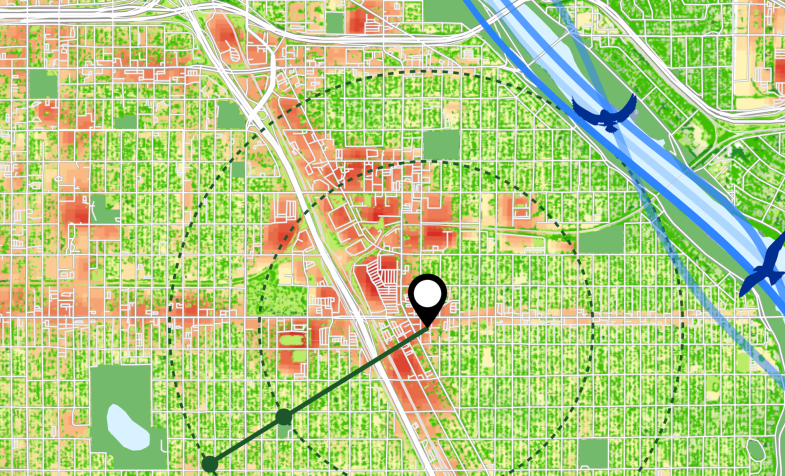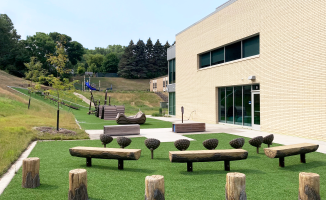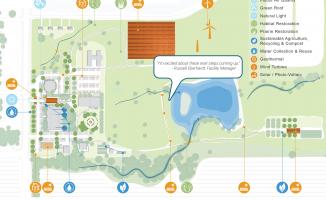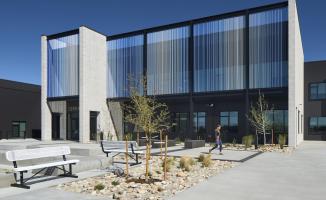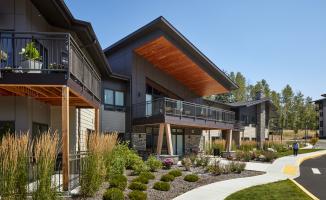“From Fire to Fair: A Story of Healing” a presentation of regenerative design strategies for the 2023 Living Futures Conference
“From Fire to Fair: A Story of Healing” a presentation of regenerative design strategies for the 2023 Living Futures Conference
Last month, I attended the 2023 Living Futures Conference in Washington D.C with key stakeholders in the redevelopment of Gandhi Mahal and Pangea World Theatre in Minneapolis, Minnesota.
Joined by Meena Natarajan from Pangea World Theater, Cameran Bailey from NEOO Partners, and Josh Bergeron from Tikun Collective, we presented “From Fire to Fair: A Story of Healing” to catalyze regenerative design strategies.
History
In 2020, following the onset of the pandemic and civil unrest resulting from the murder of George Floyd, Minneapolis found itself an epicenter of change. One of the many businesses trying to navigate the uncertainty during this time was Gandhi Mahal, a local restaurant and community center that lost its physical space to the fires.
Strengthening community through regenerative food systems has been a core part of Gandhi Mahal’s mission since its founding in 2008 by owner Ruhel Islam. In the decade and a half following the restaurant’s inception, Islam has used his restaurant to experiment with sustainable, equitable food systems–including aquaponics–that generate local capital and address environmental and economic inequity.
For many years, Islam also partnered with Pangea World Theater, a local intercultural theater group rooted in a mission of creating sacred, intersectional spaces rooted in justice. Since 1995, the group had been leasing or renting performance spaces. After his restaurant was lost to fire, Islam was able to put plans for building a shared, permanent space for the group into action.
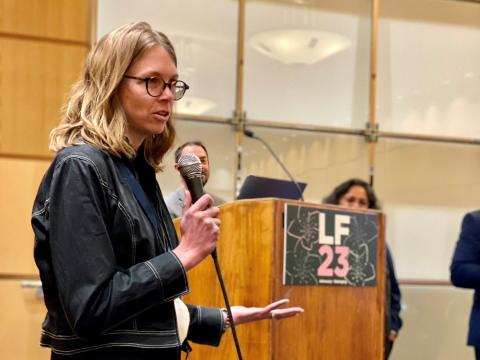
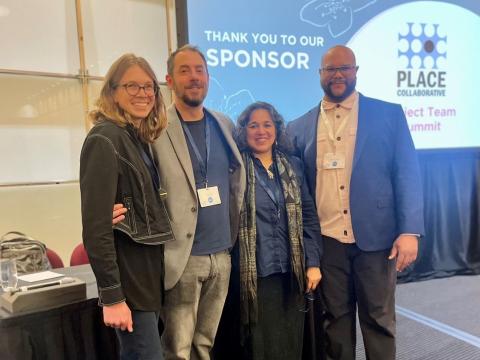
Elevating Community Through Regenerative Design
Initial conversations for a new space began with Tikun Collective in April 2020, followed by two years of planning, community engagement and procurement of partners and funds. The lengthy pre-design process reflects the investment necessary to heal communities in the wake of trauma.
Cuningham’s work with the pre-design team of Tikun Collective and NEEO Partners went beyond that of a typical regenerative design consultant. We leveraged our extensive local connections to create meaningful partnerships for the client. We were a “creative conduit”, providing tools and answers to key questions governing the project.
Gandhi Mahal and Pangea World Theatre were already committed to creating a regenerative environment that could uplift underserved communities and restore cultural and natural ecosystems. Our work suggested opportunities for implementation of regenerative design strategies, flagged potential challenges, and facilitated critical relationships to make their goal a reality.
“Belonging is really something that’s ancient. We walk in our ancestors’ footsteps. Our ancestors understood that the work we’re involved in is relational work. What does it look like to belong here?”
Riz Prakasim
Manager at Gandhi Mahal
Living Futures Registered
We helped Gandhi Mahal register with the Living Future Institute’s Living Building Core Project, part of the organization’s “Living Building Challenge.” To achieve the challenge’s Core Green Building Certification, the new Gandhi Mahal will have to meet a framework of 10 best practice achievements rooted in the challenge’s seven "petals” (Place, Water, Energy, Health + Happiness, Materials, Equity, Beauty).
Gandhi Mahal’s commitment to achieve this certification reflects the project’s ability to respond to climate change with holistic, high-performance design considerations. Cuningham examined the petals to provide pre-development recommendations at both the community and building level, several of which are detailed below:

Place
Gandhi Mahal is located adjacent to one of Minneapolis’ two Green Zones, a group of neighborhoods identified by the city to be suffering from high levels of environmental pollution and racial, political, and economic marginalization. Among the many social, economic, and environmental challenges facing this once-redlined community are old building stock, disinvestment, and increased vulnerability to climate-related illnesses like air and water pollution.
Given Gandhi Mahal and Pangea's World Theater’s core value of bringing community together, Cuningham spoke to the City of Minneapolis to recommend re-imagining the adjacent 27th Avenue as a community corridor by promoting multi-modal transportation and adding green space. This included the possibility of expanding the Green Zone boundaries to increase access to available resources for the neighborhood’s many BIPOC-owned businesses and residents.

The area around Gandhi Mahal also suffers disproportionately from urban heat island effect when compared to the rest of Minneapolis. To address this inequity, Cuningham’s team recommended connecting the site to the greater urban tree canopy and green spaces to support habitats for migratory birds and pollinators

Water
Given the high expected water use for the proposed theater and restaurant (10x annual rainfall), the design team explored a concept for a “water district” to capture stormwater from storm drains along 27th Avenue and Lake Street for non-potable building uses and to divert water from the nearby Mississippi River.
Cuningham also met with the city’s green infrastructure director, who supported this pilot project for the City and suggested several grant programs to be leveraged for funding.

Health + Happiness
Despite the area’s limited options for fresh groceries, the community adjacent to Gandhi Mahal is noted for its strong network of community gardens and centers.
The project’s proposed rooftop greenhouse will serve as a connection point for the community and a shared resource to help residents grow their own food and support local urban farmers. The partnership between Gandhi Mahal and Pangea World Theater will provide a unique opportunity to expand the network of community gardens, backyard gardens, farmers markets, and fresh food suppliers in the community.
Gandhi Mahal also aims to eliminate food waste by utilizing a biodigester to convert food waste into nutrient-rich biodigestate for on-site use in the gardens and urban farms.
Next Steps
The pre-development phase concluded in 2022. Since then, Pangea World Theatre and Gandhi Mahal opted to move forward with two separate spaces after Pangea was offered a vacant lot owned by Moon Palace Books one block away from the Gandhi Mahal site.
Even though they will no longer share the same space, the two organizations continue to share the same mission. In this way, the project has truly been a regenerative process, as Pangea World Theater has indicated interest in also pursuing the Living Building Core program; from one Living Building spawns two.
Cuningham is grateful to have been welcomed by this incredible group of authentic change-makers. I want to personally thank Meena Natarajan, Cameran Bailey, and Josh Bergeron for seeking out Cuningham’s expertise and welcoming us on to such a transformative project. I also want to thank my numerous colleagues at Cuningham for their support and ability to see the value we can bring to such an atypical project.
For more on how regenerative design strategies can create a foundation for your project and community, reach out to me below.
